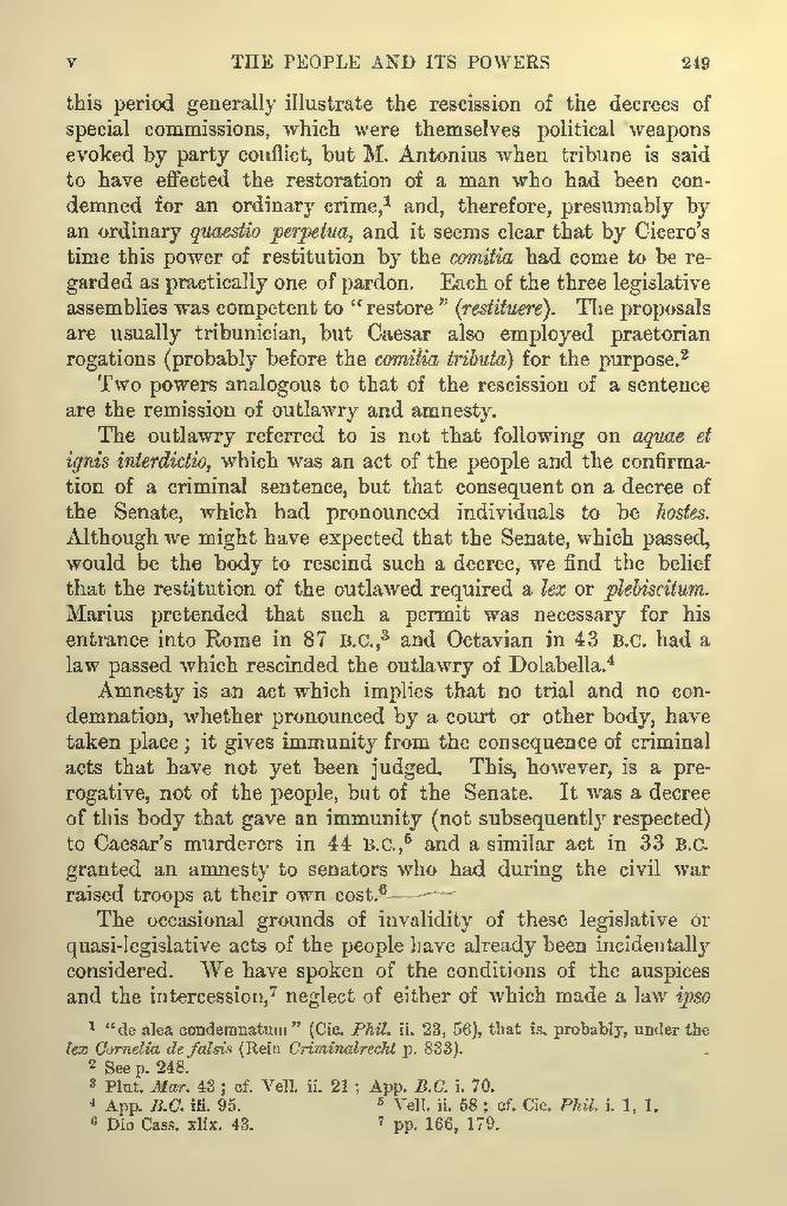this period generally illustrate the rescission of the decrees of special commissions, which were themselves political weapons evoked by party conflict, but M. Antonius when tribune is said to have effected the restoration of a man who had been condemned for an ordinary crime,[1] and, therefore, presumably by an ordinary quaestio perpetua, and it seems clear that by Cicero's time this power of restitution by the comitia had come to be regarded as practically one of pardon. Each of the three legislative assemblies was competent to "restore" (restituere). The proposals are usually tribunician, but Caesar also employed praetorian rogations (probably before the comitia tributa) for the purpose.[2] Two powers analogous to that of the rescission of a sentence are the remission of outlawry and amnesty. The outlawry referred to is not that following on aquae et ignis interdictio, which was an act of the people and the confirmation of a criminal sentence, but that consequent on a decree of the Senate, which had pronounced individuals to be hostes. Although we might have expected that the Senate, which passed, would be the body to rescind such a decree, we find the belief that the restitution of the outlawed required a lex or plebiscitum. Marius pretended that such a permit was necessary for his entrance into Rome in 87 B.C.,[3] and Octavian in 43 B.C. had a law passed which rescinded the outlawry of Dolabella.[4] Amnesty is an act which implies that no trial and no condemnation, whether pronounced by a court or other body, have taken place; it gives immunity from the consequence of criminal acts that have not yet been judged. This, however, is a prerogative, not of the people, but of the Senate. It was a decree of this body that gave an immunity (not subsequently respected) to Caesar's murderers in 44 B.C.,[5] and a similar act in 33 B.C. granted an amnesty to senators who had during the civil war raised troops at their own cost.[6] The occasional grounds of invalidity of these legislative or quasi-legislative acts of the people have already been incidentally considered. We have spoken of the conditions of the auspices and the intercession,[7] neglect of either of which made a law ipso
Page:Roman public life (IA romanpubliclife00greeiala).pdf/273
This page needs to be proofread.
